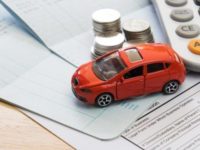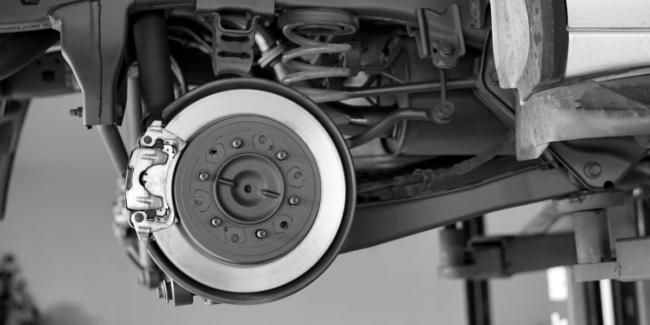Slash your car bills with some simple tips!
Guest post by Emily Hanson
We all know the perks of having a car. Freedom on the road. A cosy commute to work. Impulse camping trips. The list goes on. However, when your car is in constant need of repairs or your insurance premium is through the roof, it can start to become more of a burden than a luxury.
Outgoings in London are expensive as it is, so it’s crucial to know how you can save a few bob on your car running costs. Here are some top tips to cut your costs, including DIY maintenance tricks, options to cut your insurance costs and ways you can optimise your fuel economy.
DIY Maintenance Ideas
Time to put your mechanic hat on – learning how to do some maintenance tasks yourself will save you big bucks in the long run, making sure your car lives a long and healthy life!
Check your brake pads yourself
Your brake pads are one of the most important parts of your car. And they’re also one of those pesky components that need to be checked and replaced more often than others!
Checking your brake pads yourself is fairly easy. First, you need to know the warning signs of dodgy brake pads:
- Squeaky noise when you brake.
- Your car pulling to one side when you brake.
- Slow braking.
To actually check your brake pads, you can do a quick visual check by looking through the wheel spokes. If they’re ¼ inch thick or wider, you’re a-okay.
By checking your brake pads yourself, you’ll save yourself at least £50 worth of labour work from a mechanic. However, make sure you know what’s wrong and have the required skills before attempting to fix any issues, or you could plant yourself with a not-so-nice bill.
Check your tyre pressure yourself
Making sure that your tyre pressure is at its optimum level at all times will save you a lot of money in a few ways.
It will reduce pressure and strain on your tyres, allowing them to last longer, saving you money on replacements. It’ll allow your car to run more efficiently, with less effort to power along with poorly inflated tyres, saving you petrol money. And it’ll prevent nasty and expensive accidents caused by tyre blowout!
You can check what your tyre pressure should be by looking for information printed in your car manual, on your car door sill, or inside your petrol cap. You should check your pressure at the very least every 2 weeks. You can also invest in a portable air compressor to make things even more easier and cost effective in the long run.
Change oil and other fluids yourself
Unfortunately, engine oil doesn’t last forever and it needs to be changed regularly. Leave it too long and the oil will break down and leave gunk deposited around the inside of the engine, costing you a lot of cash in repairs or replacements.
Replacing your old oil fluid requires a drain pan, a few tools, and a way to raise your vehicle to a safe level. Take a trip to your local petrol station, or any car garage, and you can treat yourself to your choice of either synthetic or regular oil, lubricant and a filter for around £30. The cost to have your oil fluid changed by a dealer averages out at about £100.
Wash your car yourself
Washing your car really is something you should be doing yourself. Go old-school with a bucket of soapy water and a sponge, wash mitt, or both! If you have access to a hose, you’re laughing. It’s much more rewarding and cost-effective than paying for a car wash or a valet service. It might seem like a cheap deal at the time, but it all adds up!
Cutting Insurance Costs
If you’re looking to reduce the cost of car ownership in London, you have to spend a little time shopping around to compare car insurance quotes. There are loads of ways to keep your premium low and to ensure you’ve got the right coverage to save you money should you need to make a claim.
Pick the right level of coverage
Going fully comprehensive may sound more expensive, but it can actually be cheaper and covers you for more than the likes of third party, fire and theft. In the unfortunate case of an accident fully comprehensive cover would mean you wouldn’t have to fork out on anything outside your deal because you’re fully covered – instant money saver! This is especially useful when you opt for multiple cars on a policy.
Pick the right payment plan
If you can afford to pay for your insurance in one full payment instead of monthly instalments you’ll save being charged up to 30% APR by insurance companies – well worth considering if you have the funds.
Consider cost-cutting technology
Another viable option for minimising insurance costs is to get a black box installed to track your driving history. If it’s recorded that you’ve been driving safely under the rules of your policy you may pay less for your insurance than first thought – an ideal policy for new/young drivers looking to save some dosh.
Think about extra policies
It’s an unfortunate part of life that as soon as you buy a new car it has already depreciated one-third before you get it back home. If you’ve bought an expensive car and want to be covered in the event of a write-off or theft, you may want to consider GAP Insurance.
Guaranteed Asset Protection (GAP) insurance will cover the difference between your insurance payment and the full value of the car. It can be pretty expensive and unnecessary so it’s really important to find out whether GAP insurance is worth it.
Fuel Economy
When you’re browsing car deals, you’re given the manufacturer’s estimated MPG (miles per gallon). This is calculated in controlled laboratory conditions, so the way you drive can dramatically alter your real-life fuel economy. There are a few ways to keep your car economically sound:
Watch how you drive
Watching how you drive is the simplest way to reduce your fuel costs. The faster you drive, the more fuel you will part with. The more you stop and start, the poorer your fuel economy. Driving at steady, sensible speeds means your car will run more economically. In other words, stick to the speed limit and time your journeys so you’re not constantly trapped in jams!
Watch the weight
Carrying loads of excess weight in the boot will significantly drain your fuel economy. Ask yourself whether you need to be carrying around all those extra emergency essentials in your boot like snow shovels in the heat of the summer.
Turn off the air con
You’ve got electric windows, so it’s easy to crank them down when it’s too hot! Blasting the AC in your car during every and any journey will dramatically increase your fuel consumption.
Summary
Running a car doesn’t need to cost the earth.
Once you’ve practised a few DIY maintenance jobs, you’ve got a bargain yet comprehensive insurance policy in place, and you’re aware of how to preserve your fuel tank, you can cash in £100s, if not £1000s a year that you wouldn’t otherwise be able to save.






